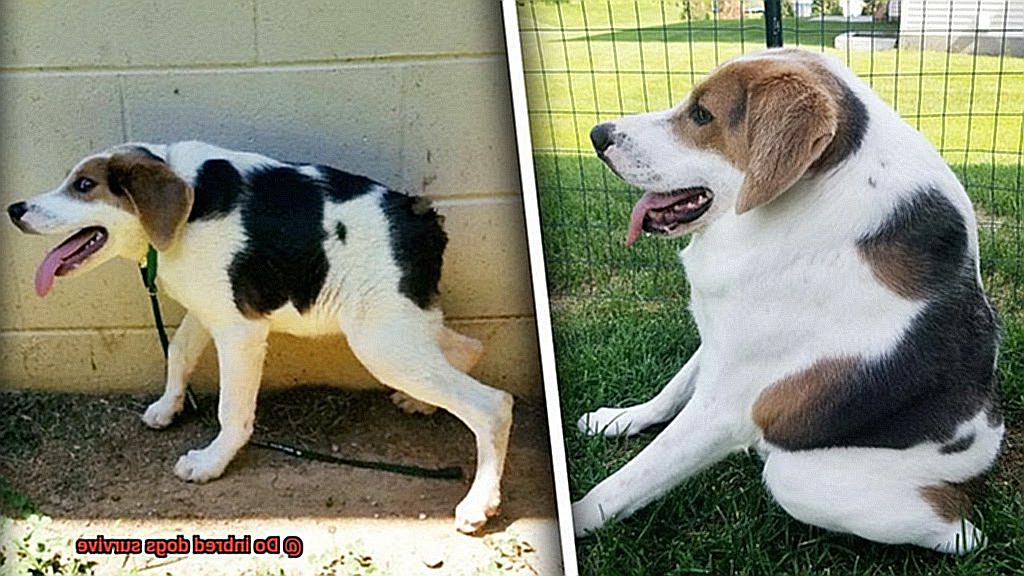Do inbred dogs survive?
Welcome to the enchanting realm of dogs, where each breed boasts its own unique charm and distinct traits.
From the regal Siberian Husky to the irresistibly adorable Golden Retriever, our four-legged friends never fail to captivate us with their unwavering loyalty and endearing quirks. But what happens when selective breeding takes a twisted turn? Brace yourself for a controversial topic that has dog enthusiasts and concerned animal lovers locked in debate: inbreeding dogs.
In this captivating blog post, we plunge into the depths of this practice, unraveling the truth about the survival of these extraordinary canines.
The Risks of Inbreeding in Dogs
Contents
- 1 The Risks of Inbreeding in Dogs
- 2 Health Issues Associated with Inbreeding
- 2.1 Inherited Diseases – The Price of Limited Gene Pool
- 2.2 Inbreeding Depression – A Weakened Immune System
- 2.3 Brachycephalic Airway Syndrome – Breathing Becomes a Struggle
- 2.4 Orthopedic Conditions – Painful Hurdles
- 2.5 Eye Disorders – A Window to the Soul, but at What Cost?
- 2.6 Congenital Defects – A Life-Altering Reality
- 3 Brachycephalic Airway Syndrome in French Bulldogs
- 4 Behavioral Problems Caused by Inbreeding
- 5 How to Minimize the Risks of Inbreeding in Dogs
- 6 The Impact of Responsible Breeding Practices on Inbred Dogs
- 7 Adopting an Inbred Dog: What Owners Should Know
- 8 Regular Veterinary Care for Inbred Dogs
- 9 Conclusion

Inbreeding, the practice of breeding closely related individuals within a population, is a common method used to maintain specific traits or characteristics within dog breeds. However, this practice can pose significant risks to the health and well-being of dogs, including our beloved French Bulldogs.
In this article, we will explore the dangers of inbreeding and its impact on the survival and quality of life for these adorable companions.
Increased Likelihood of Genetic Disorders:

One of the major risks associated with inbreeding is the higher likelihood of genetic disorders and inherited diseases. When closely related individuals are bred, there is an increased chance of passing on harmful genetic mutations.
Inbred French Bulldogs may be more prone to health problems such as hip dysplasia, heart disease, respiratory issues, and immune system disorders. These conditions can significantly affect their overall quality of life and lifespan.
Compromised Fertility and Reproductive Problems:
In addition to genetic disorders, inbred dogs may also face fertility issues and reproductive problems. The limited gene pool and accumulation of unfavorable genetic traits can lead to reduced fertility rates in French Bulldogs. This can make breeding more challenging and increase the risk of complications during pregnancy or delivery.
Reduced Genetic Diversity:
Another risk of inbreeding is the reduced genetic diversity within a breed. Genetic diversity plays a critical role in maintaining a healthy population by providing a wide range of genetic variations that can help fight against diseases and adapt to changing environments.

With limited genetic diversity, inbred French Bulldogs become more susceptible to various health issues and may struggle to survive in challenging conditions.
Behavioral Issues:
In addition to physical health concerns, inbreeding can also lead to behavioral problems in dogs. Inbred French Bulldogs may exhibit traits such as aggression, anxiety, and poor temperament due to the accumulation of unfavorable genetic traits
These behavioral issues can make it challenging to train and socialize them, affecting their overall happiness and compatibility as family pets.
Responsible Breeding Practices:
It is essential for breeders and potential dog owners to be aware of the risks associated with inbreeding and take steps to minimize them. Responsible breeders prioritize the health and well-being of their dogs by implementing careful breeding practices.
This includes conducting health screenings, genetic testing, and diversifying the gene pool through outcrossing or introducing new bloodlines.
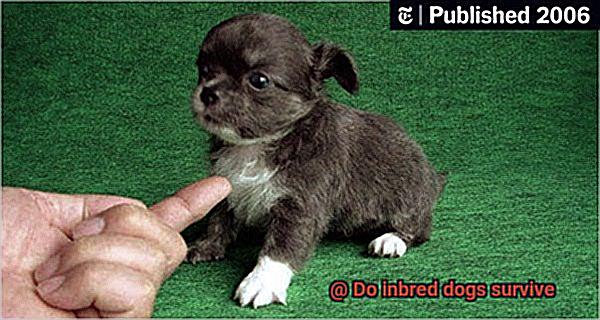
By doing so, breeders can help reduce the prevalence of genetic disorders and promote healthier French Bulldogs.
Health Issues Associated with Inbreeding
In this article, we’ll dive into the health issues associated with inbreeding in French Bulldogs and how you can protect your furry friend’s well-being.
Inherited Diseases – The Price of Limited Gene Pool
- Inbreeding increases the risk of passing on faulty genes, leading to a higher incidence of inherited diseases and deformities.
- Common inherited diseases in French Bulldogs include hip dysplasia, brachycephalic airway syndrome, eye disorders, and orthopedic conditions.
- Regular veterinary check-ups and genetic testing can help identify potential health risks early on.
Inbreeding Depression – A Weakened Immune System
- Inbred dogs are more likely to have weakened immune systems, making them more susceptible to infections, allergies, and immune-related disorders.
- Be vigilant about your French Bulldog’s health by providing a balanced diet, regular exercise, and a stress-free environment.
Brachycephalic Airway Syndrome – Breathing Becomes a Struggle
- French Bulldogs are prone to brachycephalic airway syndrome due to their flat faces and short noses.
- Breathing difficulties, heat intolerance, and snoring are common symptoms.
- Surgical intervention may be necessary to improve their quality of life.
Orthopedic Conditions – Painful Hurdles
- Hip dysplasia is a common orthopedic condition in inbred dogs.
- Regular exercise, maintaining a healthy weight, and providing joint supplements can help manage this condition.
- Other orthopedic issues like luxating patella and elbow dysplasia are also prevalent in inbred French Bulldogs.

Eye Disorders – A Window to the Soul, but at What Cost?
- Inbreeding increases the risk of eye problems like cataracts, progressive retinal atrophy (PRA), and glaucoma.
- Regular eye examinations and early intervention are crucial for preserving your French Bulldog’s vision.
Congenital Defects – A Life-Altering Reality
- Inbred dogs face a higher risk of congenital defects and abnormalities.
- Cardiac anomalies, neurological disorders, and developmental issues can impact your furry friend’s quality of life.
- Early screening and prompt medical attention can help manage these conditions.
Brachycephalic Airway Syndrome in French Bulldogs
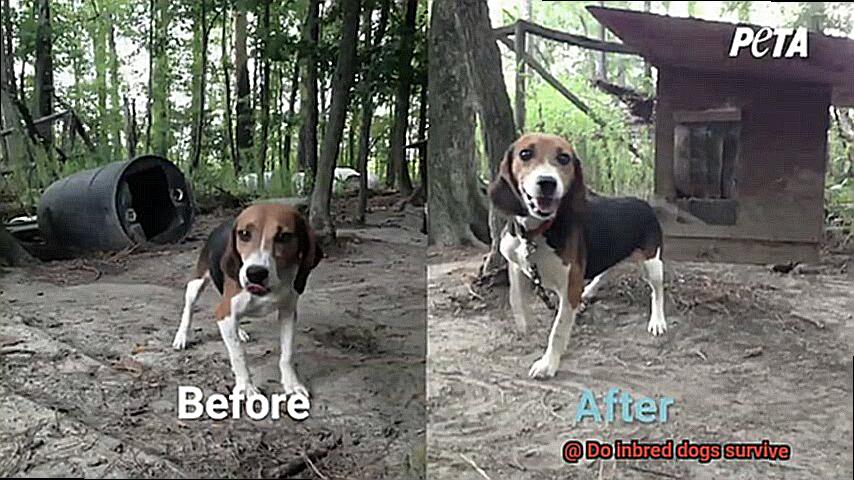
Today, we’re diving headfirst into the world of Brachycephalic Airway Syndrome (BAS) to shed light on this common health issue that affects our adorable flat-faced friends. From understanding the unique challenges they face to finding proactive solutions, let’s embark on this journey together.
The Anatomy Behind BAS:
French Bulldogs, with their squished snouts and compacted airways, possess an anatomical predisposition to develop BAS. Their shortened muzzles restrict the size of their air passages, making it harder for them to breathe freely. Moreover, an elongated soft palate can further obstruct their airway, leading to a range of respiratory difficulties.
Spotting the Signs:
To help your French Bulldog lead a happy and healthy life, it’s crucial to recognize the symptoms of BAS. Keep an ear out for loud snoring, excessive panting, wheezing, and difficulty exercising or playing for extended periods. Remember, these symptoms worsen in hot weather or during strenuous activities when their respiratory system faces increased stress.
Taking Action:
Once you’ve identified the signs, it’s time to take action. Veterinary care is essential for managing BAS effectively. Treatment approaches often involve a combination of medical management and surgical intervention.
For mild cases, lifestyle adjustments such as weight management and avoiding triggers that cause respiratory distress may suffice. In more severe instances, surgical procedures can correct anatomical abnormalities like elongated soft palates or narrowed nostrils.
The Importance of Proactive Care:
While treatment can improve your furry friend’s quality of life, it’s important to note that BAS cannot be entirely cured. Due to their unique anatomy, French Bulldogs will always have a predisposition to respiratory issues.
Therefore, proactive care is key. Regular check-ups with your veterinarian, monitoring your dog’s condition, and managing their overall health are essential steps in ensuring their well-being.
Conclusion:
Brachycephalic Airway Syndrome presents a significant challenge for French Bulldogs, but with knowledge and proactive measures, we can provide them with the best possible care.
By staying vigilant, seeking timely veterinary attention, and making necessary lifestyle adjustments, we can help our beloved flat-faced companions lead happier, healthier lives. Remember, protecting their well-being is in our hands.
Behavioral Problems Caused by Inbreeding
French Bulldogs are beloved for their unique appearance and charming personalities. However, it is important to acknowledge the potential behavioral problems that can arise due to inbreeding in this breed.
Inbreeding refers to the mating of closely related individuals, and while it may be done with good intentions to maintain certain breed characteristics, it can have negative consequences on a dog’s behavior.
Aggression
One of the most common behavioral problems seen in inbred French Bulldogs is aggression. Inbreeding can increase the likelihood of aggressive behavior towards humans or other animals.
This aggression can be unpredictable and may not always have an obvious trigger. It is essential for owners to provide proper training, socialization, and management techniques to help mitigate these aggressive tendencies.
Fearfulness and Anxiety
Inbred French Bulldogs may also exhibit fearfulness or anxiety. They may be more prone to developing phobias or displaying fearful behaviors in response to certain stimuli. This fearfulness can make them more difficult to train and socialize properly.
It is crucial for owners to create a safe and supportive environment for their French Bulldogs, and consider seeking professional help from a dog behaviorist if the fearfulness becomes severe.
Reduced Intelligence and Cognitive Function
Inbreeding can also lead to reduced intelligence and cognitive function in French Bulldogs. These dogs may have decreased learning abilities, memory problems, and difficulties in problem-solving tasks. They may also display repetitive behaviors or obsessive-compulsive tendencies. Mental stimulation through training, puzzle toys, and interactive games can help alleviate these issues and promote mental well-being.

Compulsive Behaviors
French Bulldogs bred through inbreeding are more susceptible to developing various types of compulsive behaviors, such as excessive licking, tail chasing, or pacing. These behaviors can be difficult to manage and may require specialized training or behavioral interventions. Providing ample physical exercise, mental stimulation, and structured routines can help prevent or reduce the occurrence of these compulsive behaviors.
Responsible Breeding Practices
To minimize the impact of inbreeding on behavioral problems, it is crucial for breeders to prioritize genetic diversity. Responsible breeders should avoid excessive inbreeding and strive to maintain a diverse gene pool within their breeding programs. This can help reduce the likelihood of inherited behavioral issues and promote overall better health and well-being in French Bulldogs.
Seeking Professional Help
If you suspect that your French Bulldog may be exhibiting behavioral problems related to inbreeding, it is essential to consult with a veterinarian or a professional dog behaviorist. They can assess the situation, provide guidance on training and behavior modification techniques, and recommend appropriate interventions to address the specific issues your French Bulldog is experiencing.
How to Minimize the Risks of Inbreeding in Dogs
We all adore our lovable and unique Frenchies, but it’s important to be aware of the potential risks associated with inbreeding.
In this guide, we will explore how responsible breeding practices can help minimize these risks and ensure the long-term health and well-being of our beloved four-legged companions.
The Dangers of Inbreeding:
Inbreeding occurs when closely related dogs are bred together, leading to a limited gene pool. This can increase the likelihood of inherited diseases and genetic abnormalities in their offspring. As responsible French Bulldog owners, it’s crucial to understand the risks associated with inbreeding and take proactive measures to minimize them.
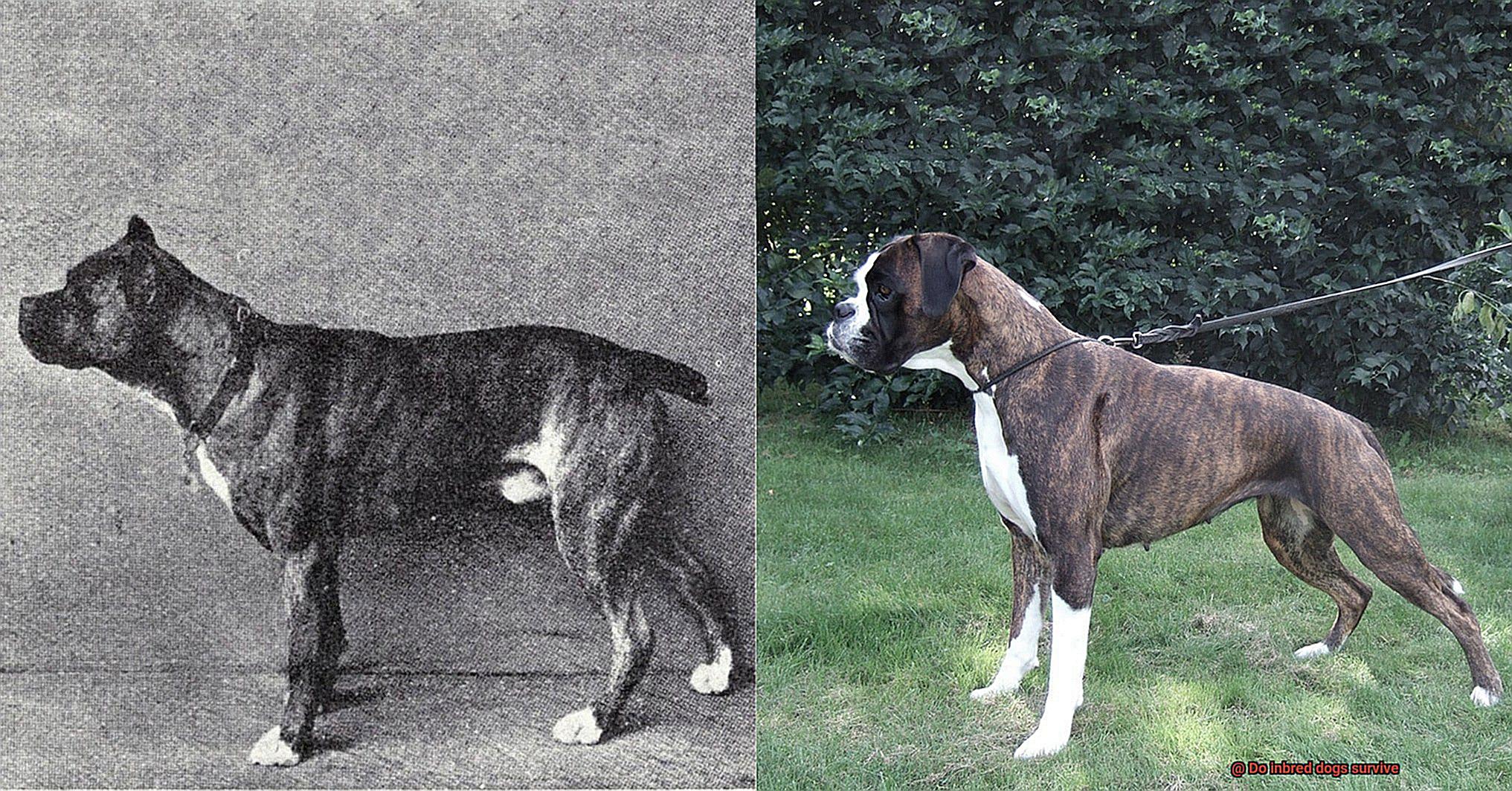
Genetic Diversity is Key:
To minimize the risks of inbreeding, breeders should prioritize genetic diversity. Introducing new bloodlines into the breeding program can broaden the gene pool and reduce the incidence of inherited diseases. Collaborating with other breeders and breed clubs can help identify suitable mates and expand the available gene pool.
Outcrossing – A Path to Healthier Dogs:
Outcrossing involves breeding dogs that are unrelated but within the same breed. This practice helps introduce new genetic material, reducing the risk of inherited diseases. However, it’s crucial to ensure that the outcrossed dog still meets the breed standard and possesses desirable traits.
Health Screenings and Genetic Testing:

Responsible breeders should conduct thorough health screenings and genetic testing before breeding their French Bulldogs. By identifying potential health issues, such as hip dysplasia or brachycephalic airway syndrome, breeders can make informed decisions and avoid passing on genetic disorders to future generations.
Open Communication and Transparency:
Breeders should keep detailed health records of their dogs and openly share this information with other breeders. Transparency promotes informed breeding decisions and helps minimize the risks of inbreeding. By working together and sharing knowledge, we can collectively improve the health and well-being of French Bulldogs.
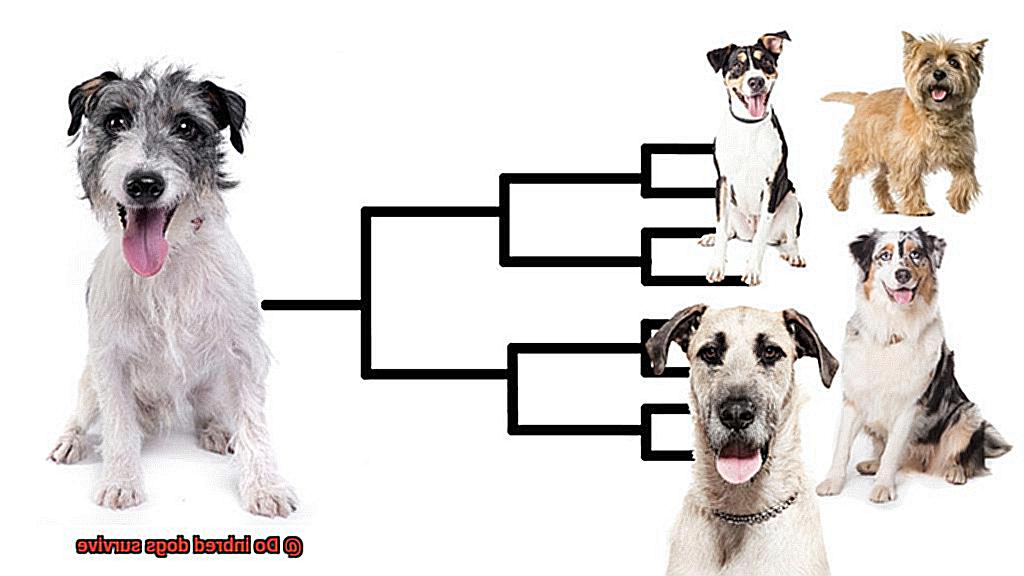
Education for Responsible Breeding:
Staying updated on the latest research and advancements in canine genetics and health is crucial for responsible breeders. Continual learning empowers breeders to make informed decisions that prioritize the health and well-being of their dogs over personal goals or preferences. Collaboration among breeders, veterinarians, and geneticists plays a vital role in developing strategies to minimize the risks of inbreeding.
The Impact of Responsible Breeding Practices on Inbred Dogs
Inbreeding can have detrimental effects on the health and well-being of French Bulldogs. However, responsible breeding practices can help mitigate these risks and improve the overall health of inbred dogs. In this blog post, we will explore how responsible breeding practices can positively impact the health and well-being of French Bulldogs.
Minimizing Genetic Disorders:
- Responsible breeders prioritize genetic diversity when selecting mating pairs.
- By avoiding closely related breeding, the risk of inheriting genetic disorders is reduced.
- Health tests and screenings are conducted on potential breeding dogs to identify any existing health conditions or genetic abnormalities.
- This helps in preventing the transmission of harmful traits to future generations.
Focus on Health and Longevity:
- Responsible breeders prioritize the health and longevity of French Bulldogs over certain physical traits or aesthetic characteristics.
- They carefully select breeding pairs based on their overall health, temperament, and genetic background.
- This reduces the risk of passing on hereditary diseases or conditions to the offspring.
Maintaining a Diverse Gene Pool:
- Responsible breeders understand the importance of maintaining a diverse gene pool to prevent the accumulation of harmful recessive genes.
- They may introduce new bloodlines or employ outcrossing techniques to introduce genetic variation into the breed.
- This helps in reducing the prevalence of genetic diseases and promoting overall well-being.

Increased Survival and Health:
- By following responsible breeding practices, breeders can significantly increase the chances of inbred French Bulldogs surviving and living a healthy life.
- Reduced risk of genetic disorders leads to fewer health issues and a better quality of life for these dogs.
Adopting an Inbred Dog: What Owners Should Know
We know how much you adore these adorable wrinkly-faced pups. But have you ever considered adopting an inbred dog? Well, before you make that decision, there are a few things you should know to ensure the best possible care for your furry friend.
First off, let’s talk health. Inbred dogs are more prone to genetic disorders and have a reduced immune system function. This means they may be more susceptible to diseases and can have a higher chance of developing conditions like hip dysplasia or heart problems. Regular vet check-ups and preventive care are crucial in keeping your inbred Frenchie healthy and happy.
But it’s not just physical health we need to consider. Inbred dogs may also be at a higher risk for behavioral issues due to their genetic makeup. Aggression, fearfulness, and anxiety are some common problems owners may face. Don’t fret, though. Working with a professional dog trainer or behaviorist can help address these issues and ensure your inbred Frenchie becomes the well-behaved companion you’ve always dreamed of.
Now, let’s talk special needs. Inbred dogs often require extra care and attention. They may have specific dietary restrictions or exercise needs due to their potential health issues. It’s essential to be prepared to invest additional time, effort, and resources into meeting these unique needs.
But here’s the deal: breeding inbred dogs is a whole different ballgame. It raises ethical concerns and can perpetuate genetic problems in future generations. Before considering breeding, it’s crucial to understand the responsibility involved and explore alternative options such as adopting a non-inbred dog or working with a reputable breeder who prioritizes genetic diversity.
In conclusion, adopting an inbred French Bulldog comes with its challenges, but with proper care and attention, these special pups can still live fulfilling lives. Remember to provide regular vet care, seek professional help for behavioral issues, and be prepared for their special needs.
If you need further information or support, there are plenty of resources available to assist you on your inbred Frenchie journey.
Regular Veterinary Care for Inbred Dogs
You’ve fallen in love with those adorable French Bulldogs and are considering bringing one into your family. While these inbred dogs can make wonderful companions, it’s important to understand the unique health concerns associated with their genetic makeup.
Regular veterinary care is essential for ensuring their overall health and well-being. Let’s dive into why regular veterinary care is so important for inbred dogs like French Bulldogs.
Increased Susceptibility to Genetic Disorders:
Inbreeding can amplify the likelihood and severity of inherited diseases in dogs. French Bulldogs are no exception. Regular veterinary check-ups allow for early detection and treatment of conditions such as hip dysplasia, heart defects, eye problems, and respiratory issues.
Compromised Immune Systems:
Inbred dogs may have weakened immune systems, making them more susceptible to infections and diseases. Regular vaccinations are crucial to protect them against common canine illnesses like distemper, parvovirus, and rabies. Your veterinarian will guide you on the appropriate vaccination schedule based on your Frenchie’s individual needs.
Screening for Cancer:
Sadly, inbred dogs have a higher risk of developing certain types of cancers. Regular check-ups with a veterinarian include screenings for cancerous growths or abnormalities. Early detection is key when it comes to treating cancer, so be proactive in seeking veterinary care.
Routine Examinations:
Regular veterinary care should include routine examinations to assess overall health and well-being. Your veterinarian will examine your Frenchie’s coat, skin, eyes, ears, teeth, and body condition during these check-ups. This helps identify any hidden issues that may not be immediately apparent to you as an owner.
Nutrition and Weight Management:
Inbred dogs may have specific dietary requirements due to their predisposition to certain health conditions. A veterinarian can provide guidance on the appropriate diet for optimal health.
Obesity is also a common issue in dogs, including inbred ones. Regular weight monitoring and dietary advice from a professional can help prevent obesity-related health problems.
Goss0a0oyLs” >
Conclusion
In conclusion, the survival of inbred dogs is a complex and contentious issue.
While some may argue that these dogs can survive with proper care and attention, it is evident that inbreeding poses significant health risks and decreases their overall chances of survival. The limited genetic diversity resulting from inbreeding leads to a higher prevalence of genetic disorders and compromised immune systems.
It is crucial for breeders and pet owners alike to prioritize the well-being and welfare of these animals by avoiding or minimizing inbreeding practices.
